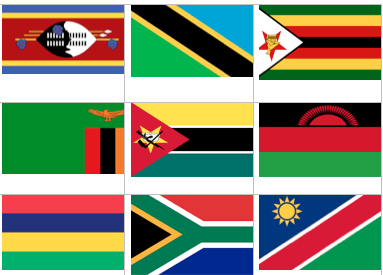Building capacity for innovation, collaboration and change in higher education
Building capacity for innovation, collaboration and change in higher education
Two recently held curriculum innovation workshops demonstrate the opportunities for regional collaboration and interaction that build capacity for creating climate and development solutions in higher education in southern Africa. Leigh Cobban and Leslie Ashburner of the African Climate and Development Initiative at the University of Cape Town look back at the process of developing a Masters curriculum in climate change.
The University of Cape Town's African Climate & Development Initiative (ACDI) was the lead partner in a consortium of southern African universities that recently developed a Master’s curriculum in ‘Climate Change and Sustainable Development’. The curriculum marks a pioneering step towards inter- and transdisciplinary collaboration among academic institutions in the region. There was an overwhelming show of interest when a call was put out for institutions to attend workshops to support the uptake of the new curriculum.
84 delegates from 22 universities attended the workshops, which were held in Dar es Salaam, Tanzania and Harare, Zimbabwe. The five-day workshops were designed and delivered by a team of facilitators comprising the curriculum authors, academic development experts and other engaged stakeholders, led by UCT’s Centre for Innovation in Learning and Teaching (CILT). The overarching aims of the workshops were for institutional teams to get to grips with both the content and the innovative teaching, learning and assessment approaches which are embedded in curriculum.
The workshops had four fundamental design principles:
- Ensuring delegate participation: Enable high levels of delegate participation, ensuring that delegates engage deeply with the curriculum materials and are able to adapt them to their own context
- Emphasising the ‘golden thread’: Always linking back to curriculum innovation and quality, including a focus on the value of formative assessment; aligning teaching, learning and assessment with module outcomes; using the associated rubrics; and increasing the use of multi-media resources.
- Teamwork: The aim was for multidisciplinary academic teams, rather than individual representatives of institutions to attend the workshop. The workshop would include time for the teams to develop their own unique implementation plan for uptake of the curriculum.
- Bigger picture – regional sharing and collaboration: Provide opportunities for participants to share stories, share plans, open-access resources, build connections with other institutions and individuals.
These design principles were underscored by a set of teaching and learning values that the facilitating team embraced:
- Reflexivity: Facilitators met daily to flag issues and reflect on and adjust the agenda responsively, always talking back to learning and issues raised on previous days.
- Flexibility: Aiming to support individual institution’s unique context in implementing the whole or part of the curriculum, considering what is relevant for each country and institutional context - not just the what (the curriculum content) but the how (what would it actually mean to implement this curriculum? What are the processes, institutional barriers and enablers?).
- Modelling: Demonstrating curriculum principles and innovation in teaching through workshop activities – i.e. practicing what is preached in the curriculum, and striking a balance between input sessions, group work, networking activities.

The combination of the design principles and values produced encouraging results, and our curriculum development team was inspired and impressed to see the extent of uptake. Most of the delegate teams intend to use the new curriculum in some form: either adopting the full curriculum or several modules; or integrating it with existing programmes or short courses. Many institutions are aiming to have the new course up and running for the start of the 2018 academic year.
Aside from the uptake of the new curriculum, a key outcome of the workshops are the new relationships and networks that have been forged, with many looking for opportunities for future collaborations. But there are still some challenges remaining, such as the need to find ways to track and monitor to what extent and how the curriculum is being implemented.
The curriculum is available to SARUA member universities to adapt and deliver, either as a self-standing Master’s level course, or as part of an existing course to bring in strong climate change components. The associated online platform will serve to enable knowledge sharing and to support a community of practice in the field of climate change and sustainable development. It will also serve as a publishing platform for new research in the southern African region.
